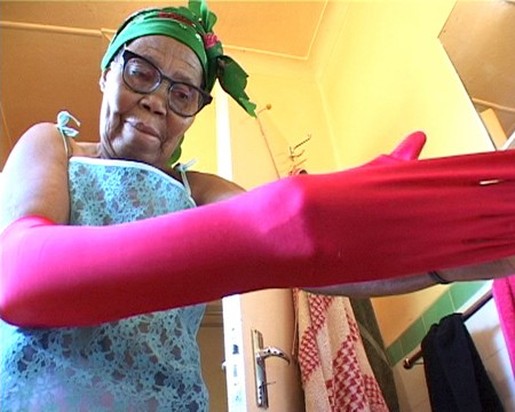 There are only two ways about it: if you want to have more money in your pocket you need to:
Saving money is the most readily available option for most people: even today you can save yourself money but to make more money you likely need more time. Yesterday I had plans for going into town to buy a few things that I thought I desperately needed but I was also very tired so in the end weariness won and I stayed at home all day and spent no money at all. Of course, we all have to spend some money to keep our homes running but by going to the right places to do your shopping you can save several thousand kwacha monthly. Once a month one of my friends goes to three shops to check the prices of the things she needs to buy and she buys every item where it’s cheapest. She goes to Game, Shoprite and Chipiku, however, I recommend you also try the market because fresh fruit and vegetables are much cheaper there. It seems like a lot of work for a monthly exercise but at the rate that prices are rising it’s so necessary. For most of us salaries are staying stable but prices continue to rise almost daily which means we’re getting poorer and poorer by the day. This shopping-around-routine is much easier than it sounds; you just need to get into the habit. Execution Plan Write a list of everything that you need. Plan your shopping-around day, let’s say you choose the third Saturday of every month. First thing in the morning go to the market and buy all your fruit and vegetables, potatoes and legumes (peas, beans, nandolo). The butchers in the market are also more willing to give you a competitive price for good cuts of meat and fresh fish. Many butchers have a mincing machine so you can save money and control the quality of meat that goes into your minced meat by having it minced in front of you. After you’re done with the market, go to Game and Shoprite. Note the price of the remaining items that you need. For the record, note down how much you saved by buying your fruits and vegetables at the market. After Game and Shoprite make for Chipiku stores or Metro. Most things will be cheaper here so it’s best to leave these store last as you’ll buy your items knowing what they cost at Game and Shoprite. Make The Most of Discount Day Once a week Game have great product discounts. If you find something that you regularly buy on offer buy it in bulk. Around Christmas time Handy Andy was cut so low that several of my friends stocked up for the whole of 2013! Remember though, when you see the word “sale” in shops, what that really means is “spend” because they are trying to lure you in to buy things on sale which you may never have intended to purchase to boost their bottom line. Once there it is difficult to resist many other “bargains” and before you know it your budget is blown. So unless you were waiting for that specific product to come on sale (and you knew the pre-sale price) don’t spend just because of the word “sale”. Make The Most of Business trips Toiletries are atrociously expensive in Malawi. If you have the opportunity to travel then buy them abroad. You will find face washes, body washes, cleansers and toners for up to one-tenth of the price that they are sold for in Malawi. With a little planning and foresight you can and you will save thousands of kwacha. At times it takes a lot of patience but it’s the price you have to pay to make ends meet. “A goal without a plan is just a wish.” Antoine de Saint-Exupéry
0 Comments
 Are you an impulsive shopper? If so, instead of buying what you want immediately, use these tried and tested strategies to tackle your impulse to buy. 1. Sleep on it. Just because you enter a shop it doesn't mean you have to buy something. I feel that guilt sometimes but I really shouldn't and neither should you. You don't owe the shopkeeper anything for simply walking into their shop. You don't need to show them that you have firepower in your purse. So what if they think you're a broke window-shopper? That's their problem. There is no shame in looking at items, even trying them on and then saying, "I need to think about whether I want to buy this or not." Or perhaps, "I need to consult my husband before I buy this" and my personal favourite, "I might be back, thanks". It's especially hard to leave the shop without buying when the shop manager or someone else that works in the shop has been looking at you like, "She's not going to buy anyway!" Instinctively you want to show them that you can and you will! I have felt this emotion myself so I know how strong it is but my advice is, fight it. The money is yours and you should not hand it over to someone else so easily. 2. Don't go to the shops Some people find it extremely hard to resist the urge to buy. The solution to this is simple, don't go into the shop in the first place, especially if you feel a strong obligation to buy. There are some shops where you simply find it hard to control yourself and these are the ones you need to avoid the most. If you get sudden urges to go to your favourite restaurant, distract yourself by cooking something for yourself. Learn how to make that dish that you like. If you can get your husband or boyfriend to stay at home and cook together, you might find that you prefer couple-cooking over eating in a restaurant. 3. Change friends You know the ones I am talking about. Every time you are with them they want to go and eat in an expensive restaurant or to have drinks at a pricey bar. They think sitting at home and chatting is boring. You don't have the money for these lavish expenditures but they expect you to pitch in anyway. Friends like these will not help you build your asset base at all. If you can't dump them, diversify. Find friends whose idea of a good time is watching a film at home, baking or going to church. Peer pressure is a major influence on how you spend money. If you want to progress, find friends that respect the fact that you are conservative with your money and that you don't want to go out and spend on a whim. "Too many people spend money they haven't earned, to buy things they don't want, to impress people they don't like." Will Smith  There are only two things you can do to increase the amount of money you have: make more or spend less. This week we're concerned with spending less. A Cleaning Co-operative Everyone hires domestic workers as though it is a must. As I showed last week although their cash pay might be low, their effective cost is probably much higher due to wastage. If you don't have kids it's unlikely that you can make efficient use of a worker. Half the time there'll be nothing for them to do. To address this have you thought about forming a cleaning co-operative? Get together with three friends and share a worker. You will immediately slash the cost of domestic help by two-thirds. Not having constant support will mean you and your husband have to do more cooking and dish-washing yourselves but honestly how long does that take? I work 10 to 12 hours a day and I still manage to do all my own cooking. Two days of domestic support is sufficient to get all your cleaning, washing and ironing done. This idea is not that radical. Such an arrangement can be set up in many different ways e.g. you can have someone round daily in the morning whilst they work at someone else's house during afternoons. If you have young children that need constant attention this obviously wouldn't work but if you're single, newly married or if your kids have left home it's a great way to spend less. One of my uncles has a single domestic worker who does all the jobs: inside and out. My uncle and aunt cook their own dinner and only have a light lunch for health purposes. The worker prepares ingredients for instance by chopping tomatoes and onions but my progressive 60 year-old uncle prefers to cook himself. Shop Abroad I went to boarding school and whenever I wanted to buy imported snacks my father told me to "support home industry". I support this view if the industry exists. Telling you to shop abroad doesn't go against this advice. Malawi does not produce clothing, cosmetics of a verifiable quality or any basic cleaning agents. All these good are imported and sold at a hefty premium. So if you travel to South Africa or anywhere else once or twice a year take the opportunity to buy these things abroad to make significant savings. One of my best friends, an Economist like myself, does this and she saves a lot of money because of it. If you budget to spend a certain amount only when you travel it enforces financial discipline on you. You're less likely to shop on impulse and much more likely to think before you buy. I think it's difficult to shop for cleaning materials abroad if you travel irregularly but it can certainly work for appliances and clothing. As a child growing up my parents always bought things abroad when they had the opportunity to travel. I would never have asked them to buy something in Malawi because I was taught how much more expensive it was locally. I became cost-aware at a very young age. If you can relay the same awareness to your kids it will stave off feelings of guilt when they ask for stuff and you say no. What do you think about co-operating with friends and relatives to share workers? Do you think shopping abroad could work for you? |
For 2 years until early 2014 I wrote a weekly personal finance and business column for Malawi's leading media house, The Times Group. The target is middle-class, working African women.
This is a reproduction of the articles that appeared in the weekend edition of Malawi News. Categories
All
Archives
May 2014
|
Heather Katsonga-Woodward, a massive personal finance fanatic.
** All views expressed are my own and not those of any employer, past or present. ** Please get professional advice before re-arranging your personal finances.



 RSS Feed
RSS Feed



